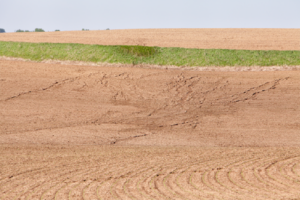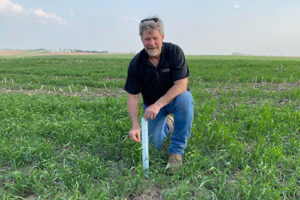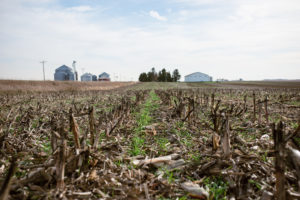By: 4R Plus
December 2020
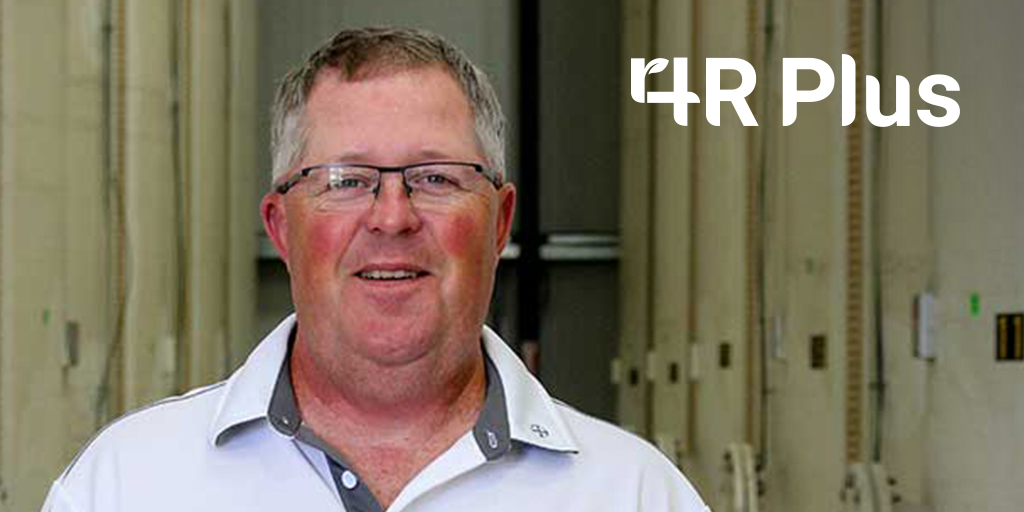
Mike Perkins, a certified crop consultant and plant nutrition sales agronomist with Asmus Farm Supply in north-central Iowa, said the initial hurdle in helping farmers with 4R Plus practices was habit. He said farmers were accustomed to talking to their retailer about product features and pricing but weren’t used to talking to them about conservation practices.
Moving past that hurdle and into a 4R Plus conversation required incorporating these practices and topics into their customer meetings. Customers have turned out to be a receptive audience. “When we brought in the NRCS (Natural Resources Conservation Service) and The Nature Conservancy to provide education about conservation practices, we got a lot of questions from our growers,” said Perkins. “The 4Rs of nutrient stewardship – right source, right rate, right time and right place – along with conservation practices is a message farmers are interested to hear not only from a water and soil health standpoint, but also from a pocketbook perspective.”
The retailer started with the basics of nutrition. “We offer soil sampling by zones, and then we manage those fields by zones,” Perkins said. “That’s worked out very well as a starting point, especially for nitrogen management.”
Asmus Farm Supply then expanded the effort with a trial component. “We promote what we call ‘First to the Field’ trials. The farmer implements the trials on their own farms,” Perkins said. “For instance, they may strip 40 acres with a flat rate of fertility versus 40 acres variable rate based on zones. We establish strict protocols for these trials to ensure we get accurate data back. The farmers that sign up for these trials get to try new practices or products at little or no cost to them.
“These trials are a starting point for many customers, showing them that managing nutrition by zones allows them to refine nitrogen rates,” Perkins said. “It often shows they can get better yields with less or the same amount of nitrogen they were broadcasting – the zones pay out better. Additionally, promoting spring-applied or split applications of nitrogen keeps the nutrient available in the soil for the growing crop. We plan to use all the nitrogen we put out there.
“To me, when you manage by zones, you’re feeding the plant versus fertilizing the soil,” Perkins said.
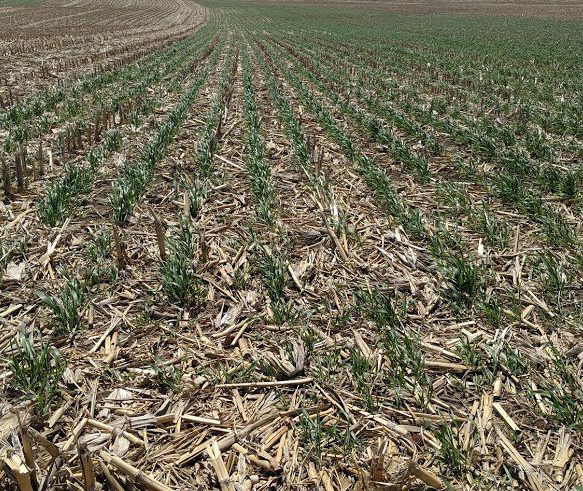
Another topic incorporated into customer meetings is cover crops. “A lot of our agronomists farm, and our seed department lead raises cover crops, so we’re getting direct feedback from good sources on what works and doesn’t work in the area,” he said. “We focus on the basics, when and what seed to use to establish the cover, when to terminate, and pay attention to herbicides being used so residual activity won’t hamper growth in fields where a cover crop is planned.”
Perkins has plans for a multiyear cover crop trial, side by side with different covers and different agronomic practices. “I’ve been a crop consultant for 25 years, and we don’t know everything, but we’re good at doing research. Trials show our customers, and ourselves, the different outcomes and values that can be delivered.”
Overall, Perkins believes encouraging 4R Plus practices is in the retailer’s best interest. “Their soil is the greatest asset our farmers have. We are directly tied to that grower doing well and doing well long term. It can be scary trying some of these new practices, but providing products and information to help farmers improve their soil season after season is good for both of us.”

